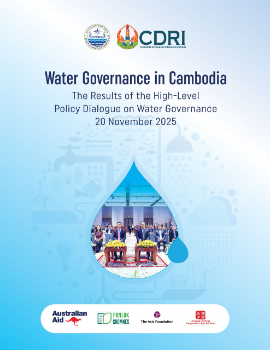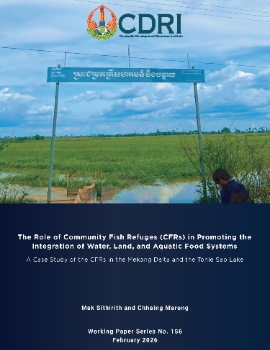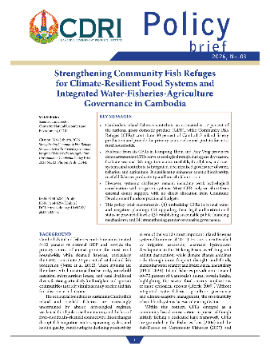
Barriers to Nutritious Food Production and Consumption: Insights from Two Case Studies
Keyword: Food security and nutrition, climate change, resource governance, agricultural production constraints, consumption behaviour
Khmer PDF (7)
Abstract/Summary
This study investigates the barriers to nutritious food production and consumption in Cambodia’s Tonle Sap Lake floodplain and Mekong Delta, focusing on two case study sites: Boeung Ream Community Fish Refuge in Kampong Thom and Ta Soung Irrigation Scheme in Takeo. Using qualitative methods, including key informant interviews and focus group discussions, the research explores how socio-economic status, gender roles, institutional capacity, and environmental factors shape food production and dietary practices. Findings reveal that while communities possess basic nutrition knowledge, access to formal education and reliable information is uneven, particularly among poor and female-headed households. Food production is constrained by climate change, rising input costs, limited land and water access, and inadequate extension services. Gender norms further exacerbate nutritional disparities, with women often prioritising others’ needs over their own. Despite national strategies promoting food security and nutrition, local implementation remains fragmented and under-resourced. The study recommends enhancing community engagement, expanding social assistance, integrating nutrition education into development planning, and building climate-resilient food systems. Addressing both formal and informal barriers is essential to improving food security, nutrition, and livelihoods in Cambodia’s vulnerable rural communities.



